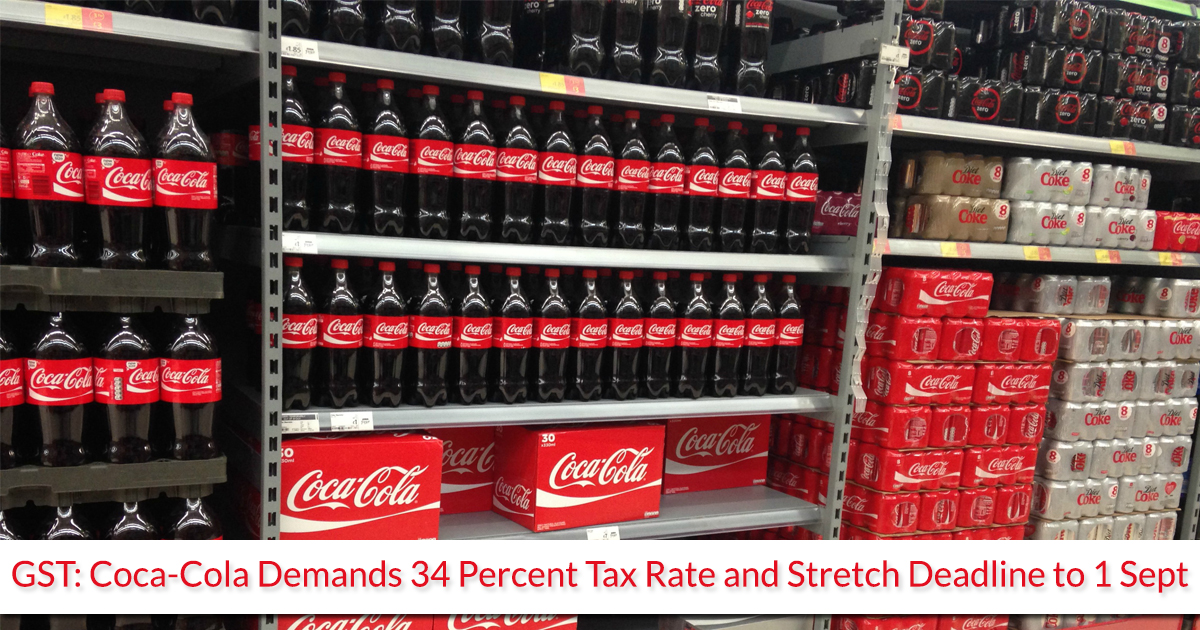The GST (Goods and Service Tax) Council is planning to implement its new indirect tax reform in the country by July 1, 2017. Meanwhile, the leading beverages maker Coca-Cola wants the implementation date to be postponed by two months and make it to September 1, 2017.
Apart from this, the giant cola manufacturing firm also demanded the average tax on aerated drinks to be 34 percent instead of 43 percent after the implementation of GST. The GST council has recently decided to increase the tax up to 15 percent over the current rate of 28 percent. On which, the company has demanded the increment of 6 percent over the current rate.
The company has also stated that their product is neither a sin product nor a luxury item. Products which belong to luxury such as luxury cars, tobacco products etc come under sin category, on which tax should be increased highest under GST.
R Sridhar, Coca-Cola’s vice president- taxation, quoted in the BS report, “They removed aerated drinks from the sin category, on which an incremental duty was charged on tariff. The government has admitted that aerated drinks are not sin.”
Read Also: Goods and Services Tax Slab Rates in India 2017
Sridhar’s logic behind pushing the the GST rollout to 1 September is that, the July 1 deadline will leave companies no time to prepare for the upcoming tax regime. If the government finalises the rules by the mid of April, it will be unfair for companies to be prepared in just 2 months.
Ishteyaque Amjad, company’s India and South West Asia vice-president (public affairs & communication), said, “An acceptance of the Arvind Subramanian committee recommendations with regard to GST rate of 40 per cent on aerated beverages will have a negative ripple effect on the entire beverage ecosystem … It will lead to a sharp decline in consumer purchase and for a demand-driven industry, it will mean a significant rationalisation of manufacturing capacity.”
Considering the increased rates of obesity and diabetes, the government has also proposed to apply rules for the manufacturers to display the fat, sugar and salt content of products on the packaging. A senior government official also said that It is also considering a nationwide “fat tax” for so-called “junk foods”.
